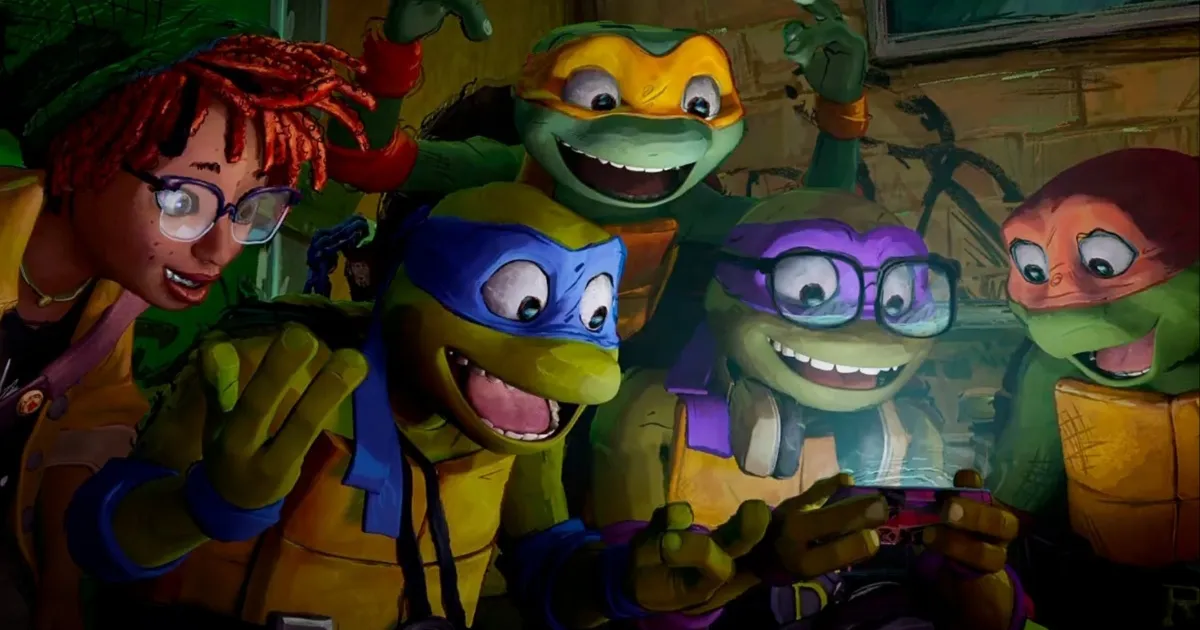Austria’s refreshingly outré official submission to this year’s Oscars race (it didn’t advance to the shortlist) is a captivating exploration of glamour, schmoozing and the soul-draining superficialities of what Joni Mitchell called the star-making machinery. As with their previous features, directors Tizza Covi and Rainer Frimmel handle all the top-line production duties themselves on Vera, shooting on 16mm and using mostly nonprofessional actors in a blend of drama and documentary. But their latest outing is also a leap into more structured fiction, and at its center is a woman who’s no stranger to the camera.
Vera Gemma, who won the Orizzonti Award for best female performance upon the film’s Venice premiere, has been a reality star, stripper, lion tamer, writer and director, as well as an actor. She grew up on movie sets, at the feet of her famous dad, Giuliano Gemma, a beloved luminary of Italian cinema for half a century, until his 2013 death, at 75, in a car accident. If her lead turn as a version of herself defies expectations, that says more about the expectations than it does about her. With her unapologetic and unsubtle surgical enhancements and an approach to fashion that favors signifiers of luxury, she might, at first glance, be easy to dismiss as a Kardashian-esque climber in search of the next photo op. But, without ceremony, Gemma and the movie peel away the veneer.
Vera
The Bottom Line
Captivating and razor-sharp.
Cast: Vera Gemma, Daniel De Palma, Sebastian Dascalu, Annamaria Ciancamerla, Asia Argento, Alessanda Di Sanzo, Walter Saabel, Gennaro Lillio, Giuliana GemmaDirectors: Tizza Covi, Rainer FrimmelScreenwriter: Tizza Covi
1 hour 55 minutes
She delivers a thoroughly engaging portrait of a 50-ish woman who’s growing disillusioned with a biz that prizes youth above all, questioning lifelong assumptions even as she can’t quite shake herself free of them. With a subdued yet breathtaking directness, the opening sequence lays bare Vera’s vulnerabilities as someone on the edges of the fame game, trying to retain some semblance of relevance. After making an appearance at a branding event, she heads home alone, stopping at a no-frills café for a quick nightcap. The revealing way she speaks with the young woman at the counter (Stella Mazzuca) and, later, a young cabbie (Jeda Filal) sets in motion the story’s undercurrent of loneliness and brokenhearted yearning.
Vera has been reminded all her life that she’s not as beautiful as her father, and lest she forget this, his portrait hangs above her bed. As she tells her younger boyfriend, Gennaro (Gennaro Lillio), a narcissist and user of the first order, being the daughter of a man renowned for his good looks has closed more doors to her than it’s opened. “Your face is too modern,” one director (Luca Ragazzi) tactfully puts it in a casting meeting, before asking for a selfie when he learns who she is. But, in figure-flaunting getups and cowboy-adjacent hats that nod to her dad’s start in spaghetti Westerns, she moves with a determined stride.
It’s a trip to the storage unit containing mementos of her father’s life and career, including Super-8 footage, that sets Vera on a new, energizing path. On the way home, Walter (a terrific Walter Saabel), the driver who carts her around town in an unassuming hatchback, and whom she keeps on payroll out of loyalty more than anything, collides with a moped. Guilt-ridden, Vera turns her focus to the injured 8-year-old boy, Manuel (Sebastian Dascalu), as well as his father, Daniel (Daniel De Palma), and a grandmother out of central casting (Annamaria Ciancamerla), who boils up pots of pasta e fagioli and keeps a many-candled Catholic altar blazing.
Vera doesn’t forsake her usual pursuits — shopping for sparkly heels, going to the salon for new extensions, consulting with her doctor about her next breast enhancement — but, increasingly invested in the boy’s happiness, she skips industry appearances set up by her agent (Angelo Perrone) and spends more and more time in the family’s neighborhood, San Basilio, on the outskirts of Rome. Whether she’s taking him to his first movie (Laurel and Hardy’s Hog Wild) or helping him with his homework, she’s an absolute natural with Manuel, who’s as delightful as his father is tightly wound and easily angered.
Rooted in an unembellished documentary aesthetic, the fictional framework of Covi’s screenplay and the nimble camerawork by Frimmel capture Gemma’s chic Trastevere day-to-day as well as the family’s working-class realities — hustles both, in different ways. And in Gemma’s performance, Vera’s deepening attachment to the family is not just affecting but effortless in its unfolding: Not far beneath the carefully maintained exterior, she’s a softie — much to the chagrin of a concerned friend (Alessandra Di Sanzo) and the devoted Walter, who sees trouble ahead.
Vera’s sister, Giuliana Gemma, who also plays herself here, at one exasperated point reminds Vera that the wealth they grew up with is no longer theirs, and recites a litany of Vera’s serial exploiters and luxury indulgences over the years. A visit with another daughter of Italian movie royalty, Asia Argento, leads to a sobering moment at the grave of an almost-famous person — a scene that’s both lyrical and razor-sharp.
Not a word or gesture in Vera is wasted. And Gemma, finding the ache and the zing in every line and every silence, is a revelation, giving us someone to truly root for in this story of meticulous images and messy life.







